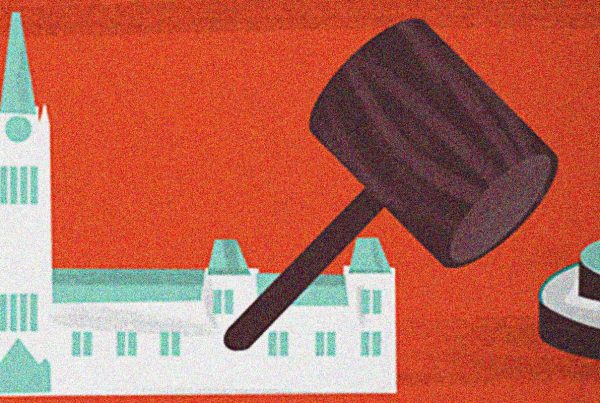TalkRights features content produced by CCLA volunteers and interviews with experts in their own words. Opinions expressed here do not necessarily represent the CCLA’s own policies or positions. For official publications, key reports, position papers, legal documentation, and up-to-date news about the CCLA’s work check out “THE LATEST” section of our website.
In Canada, there are laws in place to prevent landlords from discriminating against existing and potential tenants based on certain characteristics such as gender and race. But how do we tell if a landlord’s words or actions cross the line? Courts and human rights tribunals have the final say in the matter. By looking at past cases, we can learn a lot about what counts as illegal discrimination in housing.
The three stories below are real cases where a tenant or potential tenant took legal action for discrimination and won. These cases will help shape how the courts and tribunals interpret future legal challenges dealing with similar situations.
Case 1: Smudging
British Columbia Human Rights Tribunal (2020)
WHAT HAPPENED?
Ms. Smith, an Indigenous person, rented an apartment from Mr. Mohan. Ms. Smith regularly practiced smudging in the apartment. Smudging is an Indigenous cultural and spiritual practice involving the burning of sacred herbs. When Mr. Mohan found out about this, he started to send persistent communications asking her not to smudge, complaining about the smoke smell, and threatened to take action to end her tenancy. He argued that the smell of smoke was persisting in the neighbouring apartment and was concerned that the smell would remain permanently. He made multiple attempts to make her leave the apartment, including attempting to evict her and telling her that he would no longer accept her rent payments.
ISSUE
Ms. Smith claimed that her housing was negatively affected because Mr. Mohan discriminated against her on the basis of race, ancestry, place of origin, and religion.
WHAT THE HUMAN RIGHTS TRIBUNAL SAID
According to the Human Rights Code, a landlord cannot discriminate against a tenant on the basis of race, ancestry, place of origin, or religion. For Ms. Smith, smudging was an expression of these characteristics. By prohibiting smudging and trying to evict Ms. Smith when she continued to smudge, Mr. Mohan negatively impacted Ms. Smith’s tenancy discriminatorily.
Mr. Mohan’s reaction would have been justified if he had proven that accommodating Ms. Smith’s smudging was an undue hardship (i.e., unreasonably difficult or expensive). Mr. Mohan argued that the smoke smell from the smudging would require him to replace the whole heating system and that this was an undue hardship. However, the evidence showed that the smoke smell only remained for a few hours before dissipating. The court found that there were many possible solutions to deal with the temporary smell of smoke that would not cause Mr. Mohan undue hardship.
The court concluded that Mr. Mohan’s actions were discriminatory and could not be justified.
RESOLUTION
Mr. Mohan was ordered to pay a total of $23,300 to Ms. Smith to compensate for lost wages and expenses incurred as a result of his actions as well as injury to Ms. Smith’s dignity, feelings, and self-respect. Note that this award also reflected multiple discriminatory comments Mr. Mohan made to Ms. Smith over several months.
Case 2: Children
Manitoba Human Rights Commission (2009)
WHAT HAPPENED?
Ms. Hiebert was looking for an apartment to rent for herself and her five-year-old daughter. After seeing an ad for an available unit, she contacted a representative at Amberwood Village, a three-story apartment complex. She was told that she and her daughter could not rent the unit because it was on an upper-level floor, and they had a policy restricting children to the ground floor only. This policy was aimed at limiting noise in neighboring units.
ISSUE
Ms. Hiebert claimed that the property managers at Amberwood Village discriminated against her by denying her the opportunity to rent an apartment based on her family status.
WHAT THE HUMAN RIGHTS TRIBUNAL SAID
The Human Rights Code prohibits discrimination in housing based on family status. When Amberwood Village denied Ms. Hiebert a rental suite because she had a young child, they discriminated against her based on her status as a parent of a young child. To justify this, Amberwood Village would have needed to prove that their policy disallowing children on upper-level floors was necessary to accomplish the goal of limiting excessive noise. The court ruled that the policy was not necessary for three reasons. First, there was no data to suggest that noise complaints against children were actually more common than against adults. Second, there were available alternatives to the policy, like asking for references from Ms. Hiebert to determine any past noise complaints. Third, other apartment buildings rent upper-level units to families without issues.
The court ruled that Amberwood Village unjustifiably discriminated against Ms. Hiebert based on her family status.
RESOLUTION
Amberwood Village was required to pay $1000 to Ms. Hiebert for injury to dignity, feelings, and self-respect. The court also ordered that Amberwood Village must not restrict families to the ground floor in the future.
Case 3: Disability
Human Rights Tribunal of Ontario (2020)
WHAT HAPPENED?
Mr. Howlett rented out five bedrooms in his house, mostly to women in need of an affordable and safe living space. Ms. McLaren, who had an auto-immune illness affecting her mobility, moved into one of these rooms. During the four days she lived there, she did not follow the house rules and behaved aggressively toward other tenants. On the fourth day, Mr. Howlett slipped a note under her door saying that Ms. McLaren’s residency at the house was terminated. The reason given was that the house was not capable of providing the type of support that a person with her disability would require.
ISSUE
Ms. McLaren claimed that Mr. Howlett discriminated against her with respect to housing because of her disability.
WHAT THE HUMAN RIGHTS TRIBUNAL SAID
The Human Rights Code prohibits discrimination in housing based on disability. To prove discrimination, Ms. McLaren needed to show that her disability was a factor in the decision to end her tenancy, but it did not need to be the main reason. The note left by Mr. Howlett clearly gave Ms. McLaren’s disability as the reason for ending her tenancy. However, Mr. Howlett testified that the true reason for ending the tenancy was Ms. McLaren’s behavior; he blamed the termination on the disability only in a misguided attempt to avoid hurting her feelings. The court accepted his testimony but determined that Ms. McLaren’s disability most likely also played a role in the termination. Besides the note explicitly saying her disability was the reason, there was evidence that some of the complaints from other tenants regarding Ms. McLaren’s behavior related to her disability. Since this was a factor in ending her tenancy, the court found that Mr. Howlett discriminated against Ms. McLaren due to her disability.
RESOLUTION
Mr. Howlett was ordered to pay Ms. McLaren $1500 for injury to dignity, feelings, and self-respect. This figure was lower than in similar cases of discrimination because the judge was confident that Ms. McLaren’s tenancy would have been terminated based on her behavior regardless of her disability.
Guest Author: Charlotte Kelso
About the Canadian Civil Liberties Association
The CCLA is an independent, non-profit organization with supporters from across the country. Founded in 1964, the CCLA is a national human rights organization committed to defending the rights, dignity, safety, and freedoms of all people in Canada.
For the Media
For further comments, please contact us at media@ccla.org.





